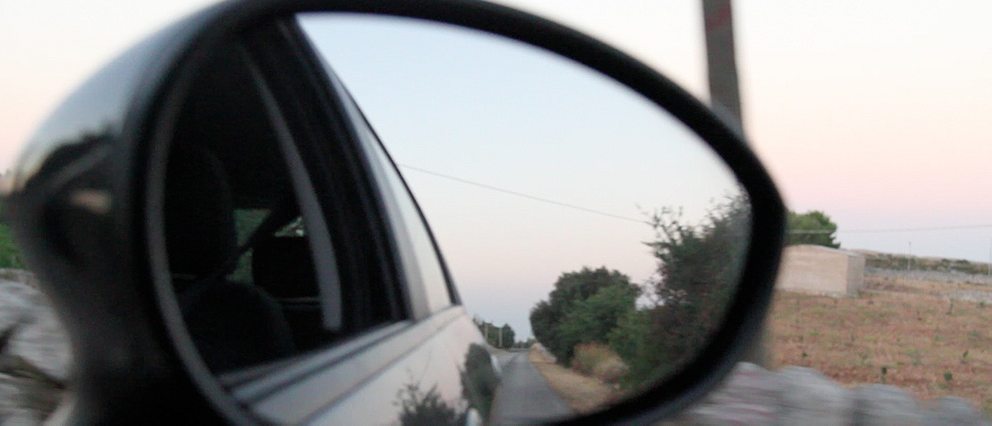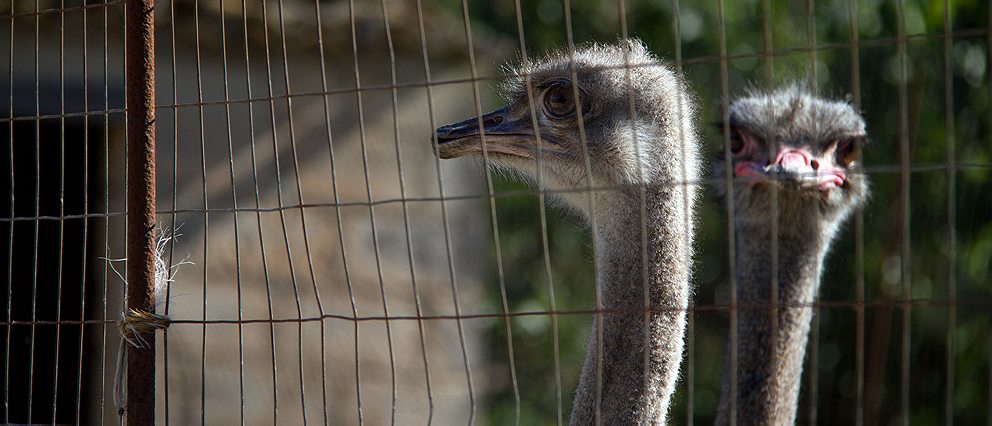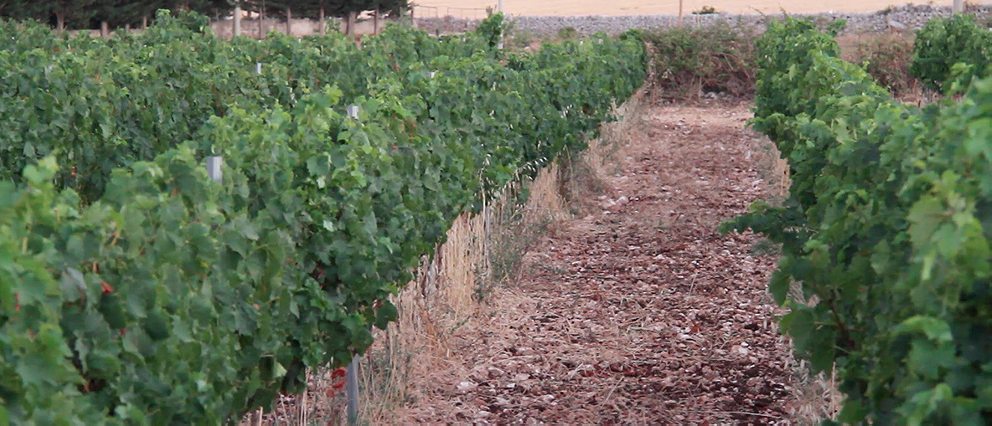From beach to mountain, notes on road-tripping through Sicily
Head First
“Como si dice ‘sí’ in spagnolo?”
“Sí.”
“No, peró como si dice ‘sí’.”
“Sí.”
This goes on a few rounds more before it finally sticks that the Italians and the Spaniards share the word for ‘yes’. Then the kids ask me to count to 10 in Spanish, forward and backward, and they are delighted to find the linguistic similarities extend to numbers as well.
All of this would be fine if we weren’t 30 feet up on a jagged rock with the Ionian Sea churning an opal froth below us. We first spotted the outcrop over lunch at Jónico, a cliff-side restaurant 10 minutes outside Syracuse’s old city. We ate calamari and pasta with anchovies and watched Italy’s leanest bodies sun themselves into impossibly dark shades on the private terrace below us. Eventually, when the white wine took hold, the talk turned to that large object rising out from the sea beyond. The call it Carabinieri Rock, because it looks like the hats worn by Italy’s police many years ago. Challenges were accepted.
By the time I finally swim over, the wine has worn off, and with it my desire to take the plunge. My strategy is to get on and off as quickly as possible, but Sicilian kids are a curious bunch, so before I can jump, we discuss Balotelli and FC Barca, the pasta scene in New York, a few of the curvy Italian women sunning themselves in the distance, and, finally, how I plan to leap off this rock. “Di testa! Di testa!” I don’t know, I say, it’s a long way to dive head first and I’ve got this feeling that these kids are icing me in the hopes that I flub it.
The questions and encouragements are still flying when I finally step up to the highest point on the rock, wave ciao and open my arms to the sea. Volo dell’angelo they call it in Italian—fall of the angel—and I feel like Gabrielle when I break the surface of the water.
But when I surface, there is no cheering or high-fiving or screaming si! si! in Italiañol. No, the kids are pointing to another cliff, twice as high as the one I just threw myself from. “No, we want you to dive off that rock.”

The Vortex
A good road trip requires a good co-pilot, and a good co-pilot requires the same set of skills that make for a good consigliere: sturdy consultation, unemotional decisiveness, and, most importantly, a steady head and clear vision when shit starts to hit the fan.
I am failing spectacularly at all three. We have been stuck in Syracuse for an hour, spinning our wheels in a never-ending series of wrong turns, second-guessing and abrupt movements that endanger the gentle citizenry of this former Greek stronghold. What were once confident, if not accurate, directions have deteriorated into a tumbling cascade of four-letter words and heated dashboard-pounding.
Suggestions to pull over for directions are dismissed outright. ”We know exactly where we’re going, we just don’t know how to get there.” Logic of the mentally fragile.
Just two days before, cruising the spacious highway between Palermo and Catania, sweeping 180 km/hr above sparkling coastal towns like some secret level of Grand Turismo, I felt like a genius and Sicily felt like Germany. But as you work your way south, past the smoky slopes of Mount Etna, past the fish markets of Catania, past the densest concentrations of island population, the Sicily of your expectations—pretty as a thousand postcards, but rough around the edges—begins to materialize before you. Signs appear and disappear without warning or logic. Main thoroughfares shrink suddenly into one-lane deathtraps. Roundabouts become vortexes of indecision; we spin around and around until anger and frustration provide us the escape velocity to break free from the circle of doom.
I give up. We stop at a gas station. They don’t have maps, but they do have a 2000€ espresso machine and a dozen different iterations of bread, cheese and cured pork. We sit and sip in silence; this could take awhile.

For Love of Country
Italians love their bodies. It is a country of speedos and bikinis, regardless of age or body type. On hot summer days like these, the towns are empty, and the beaches—even the ones that are little more than a pile of boulders that fell into the sea—are packed with nearly-nude Italians.
These are the people who are in Sicily now, these Italians from the north. Some, like our guide Sabrina, have Sicilian roots but a life up north. Others are not Sicilian at all, and probably look down on these southern cousins, but they still come because Sicily is a perfect place to put on a very tight bathing suit, sling a towel over your shoulder, and amble off to the sunning grounds. There, they will lie out on a towel, broil themselves to just the right temperature, and when their bodies request it, they will dip into the Ionian or Mediterranean Sea, towel off and repeat the cycle.
But if you drive inland from a place like Syracuse, there is a very different kind of turismo on offer. The hills rise, the air cools, and soon you are on winding roads past hilltop fortress towns and gothic cemeteries. And off of these rural mountain roads with the neatly placed stone walls, you begin to see the signs for the agriturismos.
Agriturismos are combination of bed and breakfast and working farm, a category of auberge that the Italian government has invested in heavily throughout the country. The farms are of all types—livestock, olives, grapes, or, in the case of Agriturismo Leone in Testa Dell’Acqua, all of the above, plus two dumb, angry ostriches.
Because this is Italy, the emphasis of the agriturismi is cuisine. It gives a physical body to the idea of local food: olive oil from the groves you can see from the dining room, charcuterie and cheese that was either made on the farm or bartered for from other farmers in the area. Many Italians have never spent a night of their life in an agriturismo, but will head out from the cities just to eat dinner or a Sunday lunch at the better ones.
Like any big idea, especially those that the Italian government gets involved with, there are some uneven results. Agriturismo Leone is lovely, and it is a working farm, but it still feels a touch pre-fabricated. The dining room is too spacious, the parking lot and driveway big enough for tourbuses, though thankfully none ever showed.
But still, there is something important at work here. Americans aren’t the only ones who are losing touch with their agricultural heritage. The big population centers of Italy are the industrial towns of the north, all stress-eating and flopsweat and traffic jams. The people who live there are losing their heritage, and no beach vacation is going to bring it back.
So the virtue of agriturismi is one of subtraction: there is no Red Bull and Vodka on offer here, no smell of body oil or whine of mopeds. If a love of their bodies has been sending Italians to the beach, a love of country is now sending them to the mountains.

The Big Man
Salvatore is a big man trapped in a five-year-old body. He bowls into to every room he enters. He wants you to play soccer with him. He wants to show you the empty dining hall, and he can get quite insistent—not mad, but a little shouty—if you cannot join him.
Salvatore has a big soul: you can tell he loves to talk, is unafraid and glad for the company that comes through his home.
Salvatore is overweight. Not terribly so, but for a five-year-old, he’s on the path to being a very heavy young adult. He lives in an agriturismo, one of those Italian combinations of bed-and-breakfast and farmhouse. But there’s not much farmwork that he and his family do: it’s more of a service job. The food is rich, the lifestyle surprisingly sedentary.
The idea of running an agriturismo on in the rolling hills of Sicily’s Avola district may seem idyllic, but it’s not necessarily an easy life. His parents run the place by themselves, seeing the last guests out of the dining room near midnight, starting breakfast for others at first light. And so Salvatore haunts the guestrooms and orchards of the place mostly by himself.
But he still won’t play soccer with our friend and guide through Sicily, Sabrina di Caro. “You are a girl!” he says exuberantly. “Girls can’t play soccer!” He looks around for some more… male. “This is a man,” says Sabrina, who has lived in Barcelona, far from Sicily, for more years than she can remember. “A Sicilian man.”
Finding no one to play with at the moment, Salvatore gives his flattened ball a hard kick into the vines behind the parking lot, and goes alone into the dusk to retrieve it.